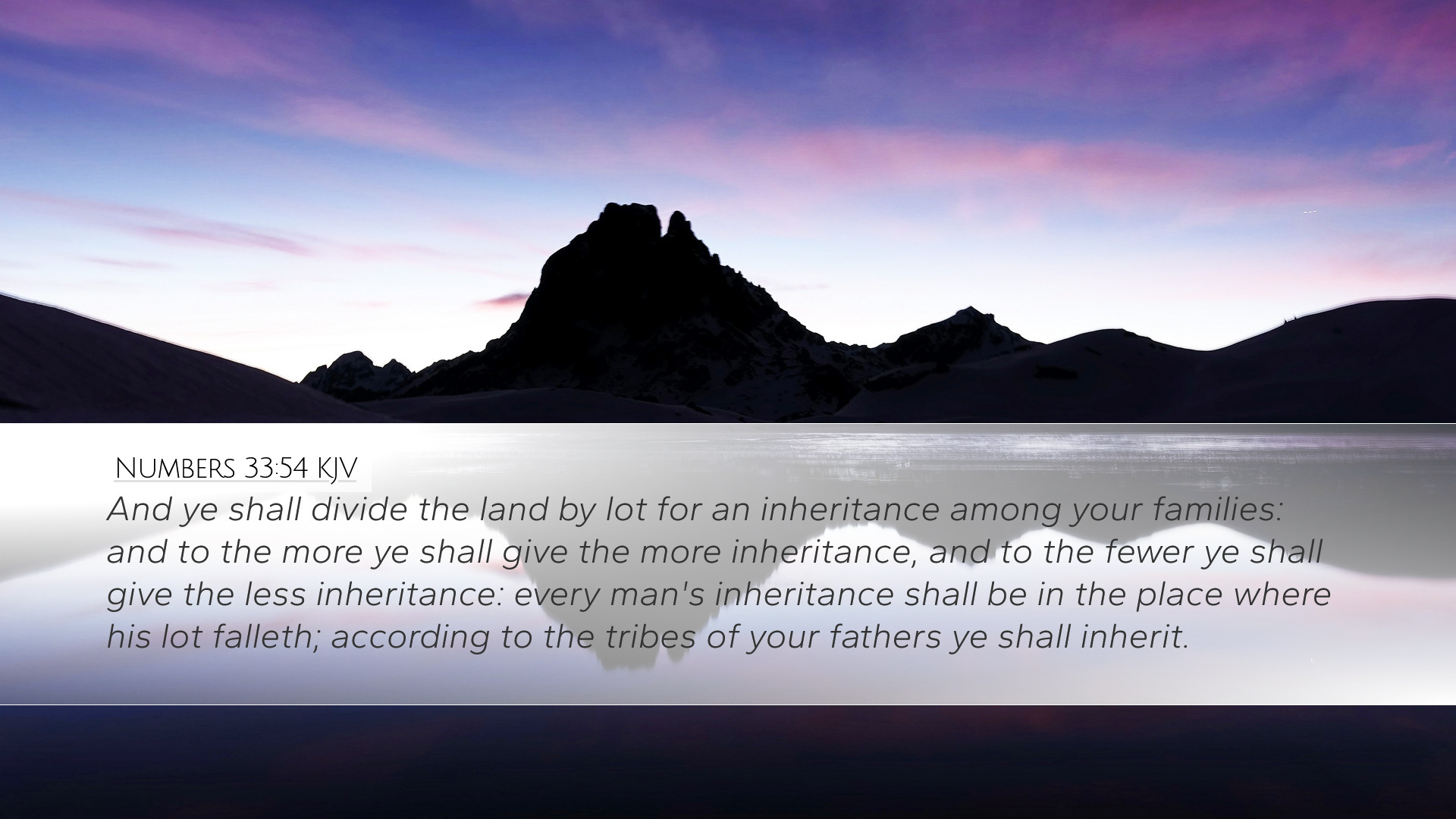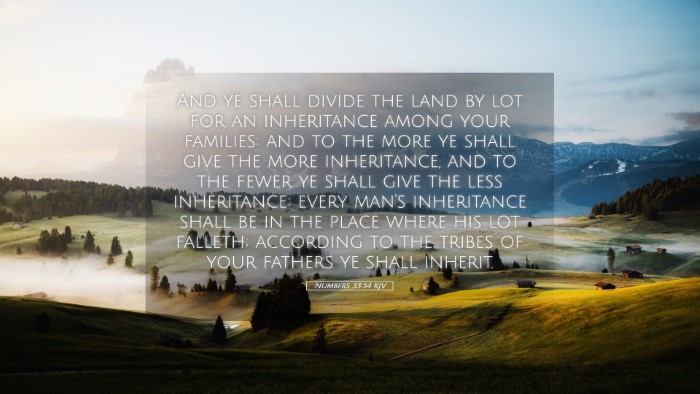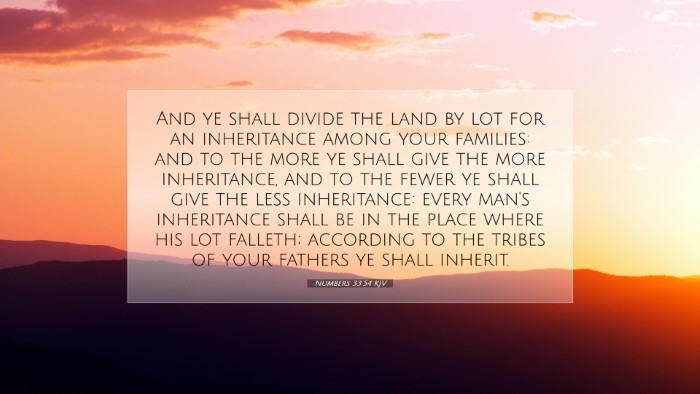Commentary on Numbers 33:54
"And ye shall divide the land by lot for an inheritance among your families: and to the more ye shall give the more inheritance; and to the fewer ye shall give the less inheritance: to every one shall his inheritance be in the place where his lot falleth; according to the tribes of your fathers ye shall inherit."
Introduction
Numbers 33:54 reveals God's instruction to the Israelites concerning the division of the Promised Land. This critical moment underscores themes of divine providence, justice, and the importance of inheritance within the Israelite community. The insights from respected biblical scholars provide a rich layer of understanding.
Historical Context
This passage occurs in the broader context of Israel’s wilderness journey as they prepare to enter Canaan. Having wandered for forty years due to their disobedience, the Israelites now stand on the brink of fulfillment of God's promise. The division of the land is not merely a logistical matter; it is deeply spiritual, tied to covenantal theology and the identity of Israel as God's chosen people.
Commentary Insights
Matthew Henry's Perspective
Matthew Henry emphasizes that the lot signifies divine providence in the distribution of the land. He notes:
- This method of division reflects God's justice and the importance of each family’s heritage.
- The act of casting lots symbolizes that the final decision rests with God, thereby promoting humility amongst the tribes.
- Henry also highlights a noteworthy balance: the more populous tribes receive a greater inheritance, while those with fewer numbers shall receive less, promoting equity.
Albert Barnes' Contribution
Albert Barnes extends the discussion by analyzing the implications of inheritance. He writes:
- Each tribe's allotment is a revelation of God's foresight, as He allocates according to the needs and numbers of each family.
- Barnes insists that inheritance was vital in ancient Israelite culture, ensuring land remained within families and tribes, promoting stability and continuity.
- He comments on the importance of the land as a physical and spiritual inheritance, seeing it as a covenantal promise not just for sustenance but as a part of their identity as God's people.
Adam Clarke's Insights
Adam Clarke provides a broader theological lens, asserting:
- The casting of lots was a common ancient practice, but its use here underscores God's sovereignty over the fate of nations.
- He discusses the moral implications of the passage: the land should be distributed fairly, aligning with God's character as just and impartial.
- Clarke stresses that this moment was as much about spiritual inheritance as physical, linking it to the promise of rest and fulfillment for the people.
Theological Implications
This passage serves as a model for understanding God's justice and equity in distribution. The Israelites were not to operate independently; rather, they were to rely on God's ordained governance in their affairs. Here are some key theological takeaways:
- Divine Sovereignty: The refusal to take possession by might underscores faith in God's providence.
- Community and Heritage: The communal aspect of inheritance fosters unity among tribes, reinforcing their identity as a chosen people.
- Justice in Allocation: The idea that more populous tribes receive more reflects social responsibility, ensuring that all families are provided for according to their needs.
Practical Applications
Pastors and theologians can draw several practical applications from Numbers 33:54:
- Faith-Based Stewardship: Encourage congregants to see their resources and inheritance through the lens of divine stewardship.
- Equitable Practices: Emphasize the importance of fairness and justice in church or community resource allocations.
- Identity in Christ: Highlight that just as God provided for the Israelites, He similarly provides spiritual inheritance to believers today.
Conclusion
The instruction given in Numbers 33:54 is not just a historical account; it is rich with implications for faith, community, and divine justice. By examining the insights of Matthew Henry, Albert Barnes, and Adam Clarke, one gains a comprehensive understanding of how these themes resonate throughout scripture. This passage challenges believers to recognize the providence of God in their lives and to act justly and equitably in their communities, reflecting the character of God in their actions and decisions.


